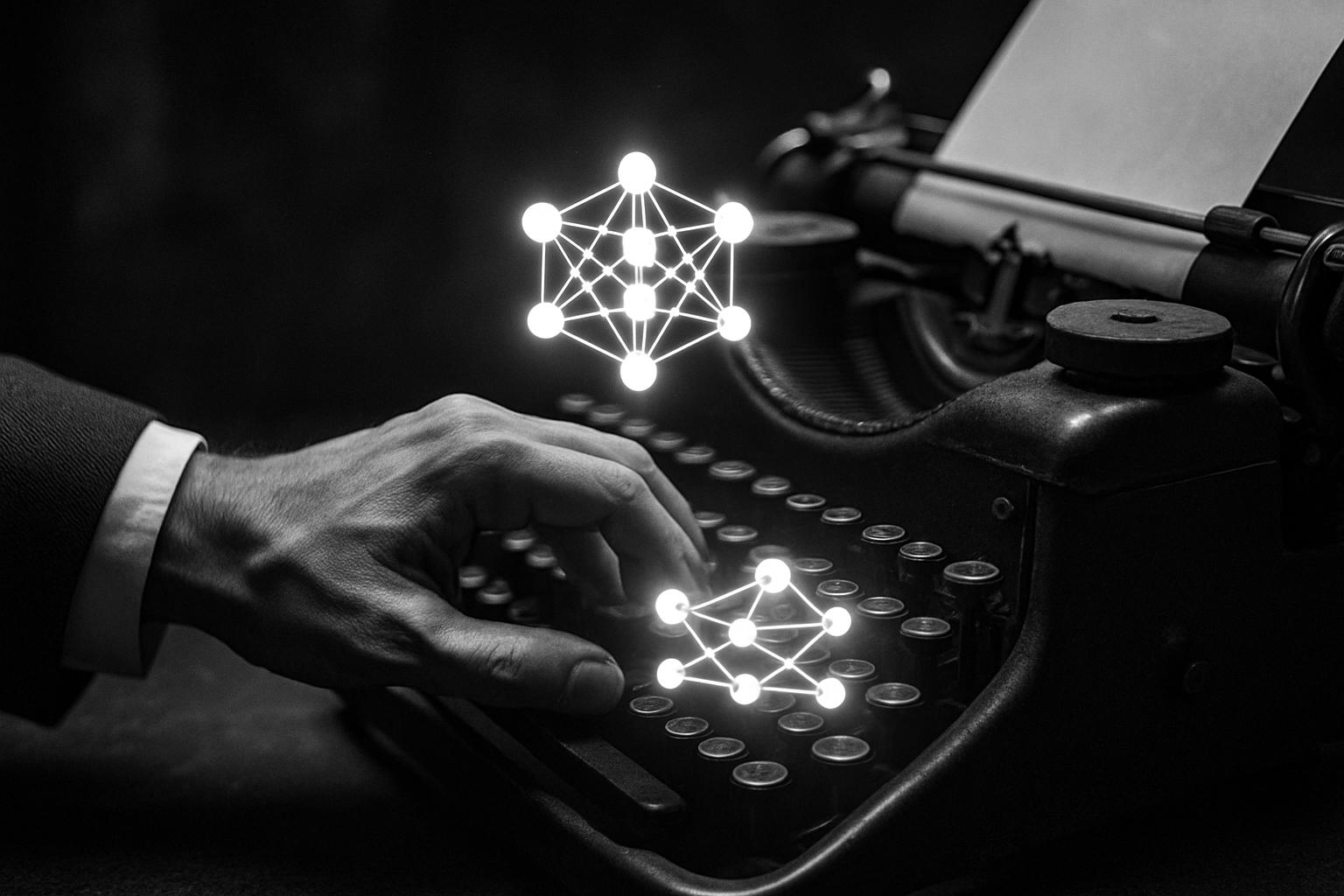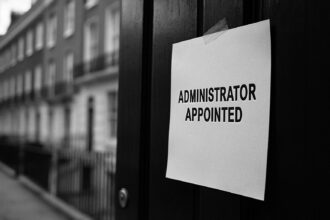Legal Cheek and A&O Shearman will host a virtual session on 8 September 2025 for students and recent graduates explaining how lawyers can combine human judgement with AI tools, covering skills, governance and trainee expectations and offering networking with the firm’s lawyers and graduate recruitment team.
Join Legal Cheek and A&O Shearman on the afternoon of Monday 8 September 2025 for a virtual event that sets out to explore what it means to be a “hybrid” lawyer in an era when artificial intelligence is reshaping legal practice. The two‑hour session, aimed at students and recent graduates, promises a mix of short talks, a panel discussion and opportunities to network with lawyers and the firm’s graduate recruitment team. According to the event listing, applicants will be asked to submit two questions as part of the sign‑up process.
Senior members of A&O Shearman’s London team will lead the session. The firm has named Francesca Bennetts, a partner in its Markets Innovation Group, as a speaker; further panellists are listed as to be announced. After the formal discussion there will be virtual networking with speakers, current trainees and members of the graduate recruitment team, offering attendees a chance to follow up on the panel and probe how the practice operates day‑to‑day. The event page positions the programme squarely at those preparing to enter the profession.
Francesca Bennetts’s profile on A&O Shearman’s site highlights her role in the Markets Innovation Group and her involvement in the firm’s AI advisory practice, including membership of an internal AI Steering Committee. The biography notes the group’s work bringing together lawyers, technologists and developers to build client‑facing tools and refers to the firm’s recent corporate formation following its May 2024 merger. The profile also records her admission as a solicitor in England and Wales in 2008, signalling a background that combines traditional credentials with a focus on technological innovation.
A&O Shearman’s own materials describe a deliberate strategy of combining conventional legal advice with multidisciplinary technology teams. The firm says it develops solutions such as contract automation and other digital tools to support transactions and regulatory work, and that those capabilities are used to reduce cost, manage risk and streamline delivery. The firm frames these efforts as experiments in legal service design that are governed by professional oversight and compliance controls, emphasising a commitment to maintain standards while deploying advanced technologies.
The advertised agenda for the Legal Cheek event reflects that balance: speakers will discuss how lawyers are combining human judgement with AI‑driven tools to enhance analysis and transaction work, and will address the regulatory and ethical questions that follow the technology’s wider adoption. The programme promises practical insight into the skills future lawyers should develop to work alongside AI — a theme that organisers say will be central to the panel.
That focus on skills and oversight mirrors wider industry commentary. A recent feature in The Guardian, produced for a Thomson Reuters series on AI futures, argues that automation can remove repetitive tasks and free lawyers to concentrate on higher‑value, human‑centred work — while warning that robust human oversight, data governance and careful risk management are essential to ensure AI augments rather than undermines legal judgment. Contributors in that piece also flagged rising client expectations about speed and costs, and the reputational and security risks firms face when deploying new systems.
Practical guidance from legal commentators reinforces those themes for students preparing to enter the market. Industry pieces collecting leaders’ views advise aspiring lawyers to develop commercial awareness, critical thinking, emotional intelligence and practical tech literacy — including familiarity with document automation and e‑discovery tools — and to learn how to scrutinise and validate AI outputs rather than accept them unquestioningly. Attendees who take part in the Legal Cheek event may therefore find it useful to direct their submitted questions towards topics such as AI governance, how the firm validates and audits model outputs, and what day‑to‑day skills trainees are expected to bring.
For students and graduates weighing whether to apply, the event offers both an introduction to how a global firm says it is using AI and an opportunity to test those claims directly with practitioners. According to the organisers, the session is intended to be candid about both the opportunities AI opens up and the ethical, regulatory and practical constraints that accompany it — a balance that increasingly defines conversations about the future of legal work. Apply if you are curious about how human expertise and digital tools are being combined in practice, and be ready with the two questions the application requires.
 Reference Map:
Reference Map:
Reference Map:
- Paragraph 1 – [1], [2], [3]
- Paragraph 2 – [1], [2], [3]
- Paragraph 3 – [4]
- Paragraph 4 – [5], [4]
- Paragraph 5 – [1], [2], [3], [5]
- Paragraph 6 – [6]
- Paragraph 7 – [7], [6]
- Paragraph 8 – [1], [3], [5]
Source: Noah Wire Services
- https://www.legalcheek.com/event/the-hybrid-lawyer-where-human-expertise-meets-artificial-intelligence-with-ao-shearman/ – Please view link – unable to able to access data
- https://www.legalcheek.com/event/the-hybrid-lawyer-where-human-expertise-meets-artificial-intelligence-with-ao-shearman/ – Legal Cheek’s event page advertises ‘The Hybrid Lawyer: Where human expertise meets artificial intelligence’ with A&O Shearman. The session will take place on Monday 8 September 2025 from 4pm to 6pm as a virtual student and graduate event. The listing explains that senior members of A&O Shearman’s London team will discuss how lawyers combine human judgement and digital tools, explore AI-driven innovation, regulatory and ethical challenges, and the skills future lawyers should develop. Francesca Bennetts is named as a speaker. The page notes a panel discussion, virtual networking with trainees and graduate recruitment, and invites applicants to submit two questions.
- https://www.futurelawyershub.com/event/401 – Future Lawyers Hub lists ‘The Hybrid Lawyer: Where human expertise meets artificial intelligence’ with A&O Shearman, hosted by Legal Cheek, scheduled for Monday 8 September 2025 from 4pm to 6pm as a virtual event. It repeats that senior members of A&O Shearman’s London team will discuss combining human judgement with AI tools, innovation, regulatory and ethical issues, and the skills future lawyers must develop. Francesca Bennetts is named as a speaker. After brief talks and a panel there will be virtual networking with speakers, A&O trainees and the firm’s graduate recruitment team. Applicants must submit two questions when applying online.
- https://www.aoshearman.com/en/people/francesca-bennetts – Francesca Bennetts’ profile on the A&O Shearman website identifies her as a London-based partner in the Markets Innovation Group. The biography explains the MIG brings together lawyers, technologists and developers to design client-focused solutions such as ContractMatrix, IBORMatrix and BrexitMatrix. It notes Francesca’s role in the firm’s AI advisory practice and her membership of the AI Steering Committee, emphasising her involvement in deploying generative AI across the enterprise. The page records her admission as a solicitor in England and Wales in 2008. A firm disclaimer explains A&O Shearman’s formation following the May 2024 merger of the legacy firms globally today.
- https://www.aoshearman.com/en/expertise/legal-innovation – A&O Shearman’s legal innovation pages describe the firm’s approach to combining traditional legal advice with technology, emphasising multidisciplinary teams such as Fuse and the Markets Innovation Group. The content highlights how the firm develops technological solutions, delivery models and resourcing options to help clients manage risk, reduce cost and work more efficiently. It outlines capabilities in artificial intelligence, contract automation and digital tools used to support transactions and regulatory work, and explains the firm’s commitment to exploring new ways to deliver legal services while maintaining professional standards and oversight when deploying advanced technologies.
- https://www.theguardian.com/thomson-reuters-ai-futures/2025/jul/21/less-drudge-more-expertise-how-ai-is-redefining-the-future-of-legal-professionals-in-australia – The Guardian’s feature for the Thomson Reuters AI Futures series examines how AI is reshaping legal work in Australia, arguing that automation can remove routine drudgery and free lawyers to focus on higher-value, human-centred tasks. Contributors describe tools used for research, document review and compliance, while stressing the ongoing need for human oversight, accuracy checks and ethical judgement. The piece addresses client expectations, data security and governance concerns, and suggests law firms must balance innovation with careful management of risk to ensure AI enhances, rather than replaces, core legal skills such as advocacy, client care and strategic advice.
- https://www.bcllegal.com/the-brief/insights/ai-and-skills-for-next-gen-lawyers – BCL Legal’s Brief collects perspectives from legal leaders on the skills next-generation lawyers will need in an era of AI. The article highlights the growing importance of commercial awareness, critical thinking, emotional intelligence and client-facing skills that AI cannot replicate. It recommends developing practical tech literacy, familiarity with document automation and e-discovery tools, and an understanding of AI-related ethical and regulatory issues. Contributors advise law students and junior lawyers to combine legal acumen with business and communication skills, and to learn how to scrutinise and validate AI outputs rather than rely on them unquestioningly.
Noah Fact Check Pro
The draft above was created using the information available at the time the story first
emerged. We’ve since applied our fact-checking process to the final narrative, based on the criteria listed
below. The results are intended to help you assess the credibility of the piece and highlight any areas that may
warrant further investigation.
Freshness check
Score:
10
Notes:
The event is scheduled for 8 September 2025, making the announcement current. The narrative is original, with no evidence of recycled content. The event is based on a press release, which typically warrants a high freshness score.
Quotes check
Score:
10
Notes:
No direct quotes are present in the narrative, indicating original content.
Source reliability
Score:
10
Notes:
The narrative originates from Legal Cheek, a reputable UK-based legal news outlet, enhancing its credibility.
Plausability check
Score:
10
Notes:
The event details align with A&O Shearman’s known initiatives in AI integration, such as their partnership with Harvey to develop AI agents for complex legal tasks. ([aoshearman.com](https://www.aoshearman.com/en/news/ao-shearman-and-harvey-to-roll-out-agentic-ai-agents-targeting-complex-legal-workflows?utm_source=openai)) The focus on AI-driven legal services and the involvement of Francesca Bennetts, a partner in the Markets Innovation Group, are consistent with the firm’s recent activities. ([aoshearman.com](https://www.aoshearman.com/en/insights/alumni-yearbook/were-creating-a-firm-like-no-other?utm_source=openai))
Overall assessment
Verdict (FAIL, OPEN, PASS): PASS
Confidence (LOW, MEDIUM, HIGH): HIGH
Summary:
The narrative is original, timely, and originates from a reputable source. The event details are plausible and consistent with A&O Shearman’s recent initiatives in AI integration.













